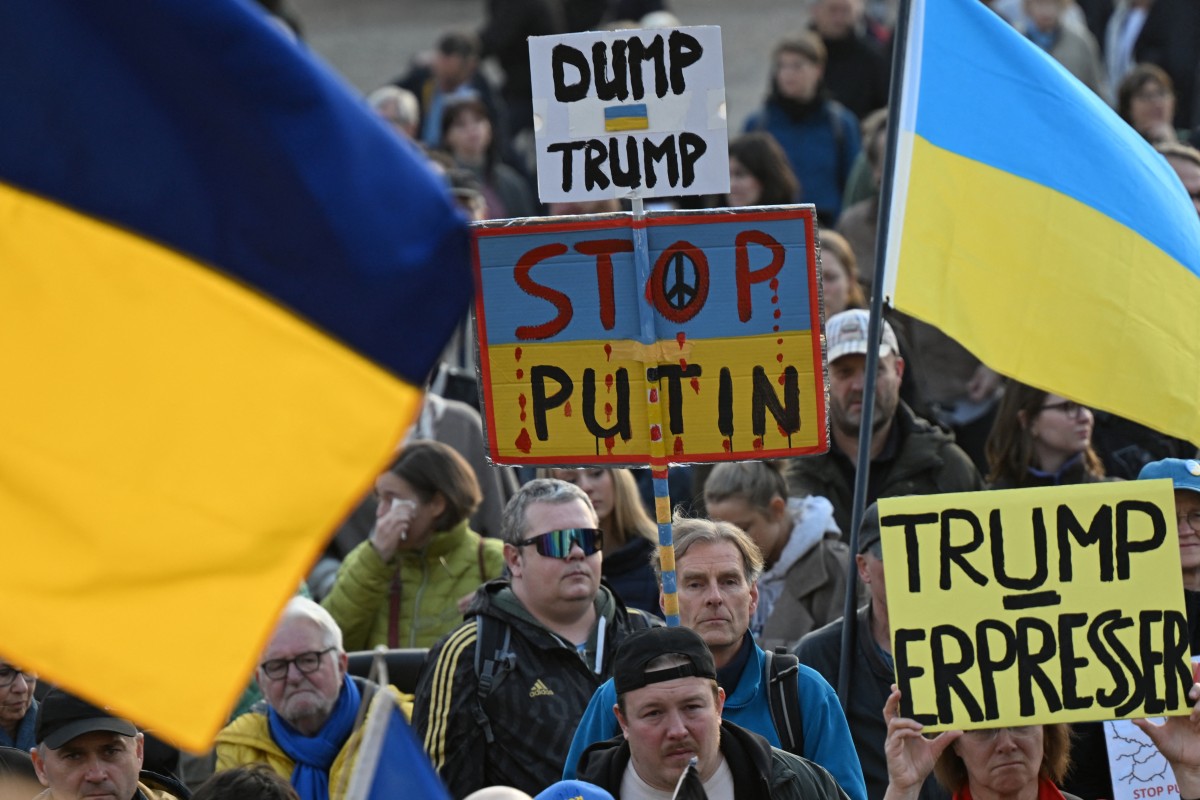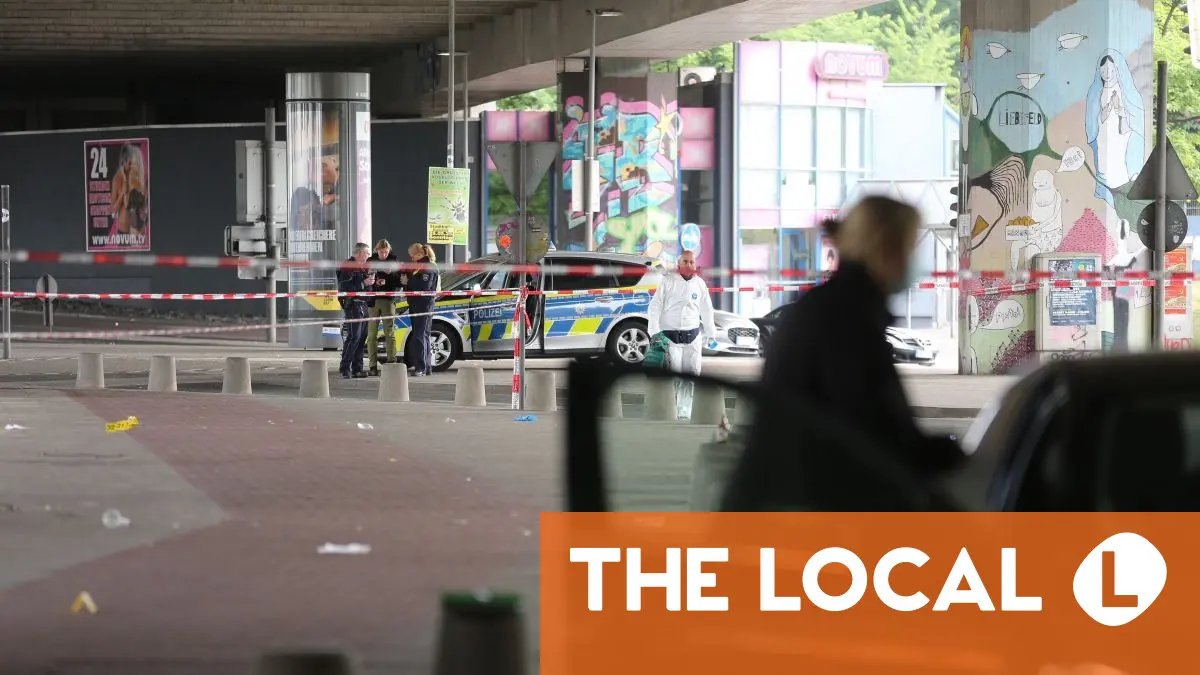Tuesday’s top story: Police arrest Bielefeld attacker
A man alleged to have attacked five people in front of a bar in Bielefeld over the weekend was arrested in Heiligenhaus (near Düsseldorf) on Tuesday morning.
The man is suspected of having injured five people with a sharp object — at least four of them seriously.
The victims, between 22 and 27 years old, had come from watching football in Bielefeld, and the suspect is a 35-year-old Syrian from from Harsewinkel.
According to initial reports in Bild and local newspapers, the perpetrator stabbed at his victims with a knife and a walking stick with a sharp attachment.
A police spokesman said that the man that was arrested was “almost certainly” the main suspect, according to Tagesspiegel.
The Integration Minister of North Rhine-Westphalia (NRW), Josefine Paul, confirmed that the man holds a valid residence permit, and that he had not had any problems with Germany’s immigration authorities previously.
READ ALSO: What are the rules around carrying a knife in Germany?
Police forces take a suspect away after his arrest in Heiligenhaus near Düsseldorf. Photo: picture alliance/dpa | Tim Oelbermann
NRW Interioir Minister, Herbert Reul said, “We know what happened on the ground and we know who he is, but nothing more.”
Finance Minister calls for government savings
As he prepares to draft a budget for the current year, Federal Finance Minister Lars Klingbeil has called on all of Germany’s government ministries to save.
“As finance minister, I will push for every ministry to bring forward savings,” the SPD chairman told the Redaktionsnetzwerk Deutschland, adding that the €500 billion special fund for infrastructure and defence spending doesn’t mean that ministries can afford to relax.
READ ALSO: Why Germany’s new goverment is already facing a black hole in its budget
Advertisement
Germany’s previous government had not passed a budget for 2025 due to the early election in February, so the new Bundestag is under pressure to pass a budget quickly.
On June 25th, Klingbeil wants to bring his draft budget through the cabinet so that the Bundestag can discuss it before the summer break. Adoption is scheduled for September.
The budget for 2026 is also due soon — to be passed by the Bundestag by the end of the year. Government circles say that the benchmarks for this are also to be decided in the cabinet on June 25th. The final draft budget is then to be adopted by the ministers on July 30th.
Advertisement
Ceasefire stalled in Ukraine – Trump reportedly under Putin’s influence
After his phone call with Kremlin chief Vladimir Putin, US President Donald Trump is trying to raise hopes for an early ceasefire.
But no details were given about what Putin would agree too, and European allies are disappointed in Trump.
Rüdiger von Fritsch, who was German ambassador to Russia from 2014 to 2019, gave an interview with ARD Tagesthemen in which he said that “Putin is taking advantage of [Trump]. He sees the dollar signs in his eyes.”
Ahead of Trump’s meeting with Putin, Chancellor Friedrich Merz wrote on X that Europe and the US wanted to “closely accompany Ukraine on the way to a ceasefire”.
Now it appears that the Chancellor’s faith in Trump’s diplomacy was misplaced.

Participants hold up placards reading ‘Dump Trump’, ‘Stop Putin’ and ‘Trump (is a) blackmailer’ during a demonstration in support of Ukraine in front of the Brandenburg Gate. (Photo by RALF HIRSCHBERGER / AFP)
Three face trial in Germany over Russian sabotage plot
Three German-Russian dual nationals will go on trial in Munich on Tuesday accused of spying for Moscow and readying attacks on critical military infrastructure and industry.
The main suspect, named only as Dieter S., is said to have been at the centre of a plot to undermine Germany’s support for Ukraine through acts of sabotage aimed at targets including US military bases.
He will be tried alongside Alexander J. and Alex D., who are alleged to have supported his activities on behalf of a foreign intelligence service.
Dieter S. faces further charges for allegedly “taking images of military installations” and “conspiracy to cause an explosion and arson”.
Prosecutors have also charged him with “membership in a foreign terrorist organisation” for allegedly fighting for a pro-Russian militia in eastern Ukraine between 2014 and 2016.
The suspect is said to have belonged to an armed unit of the self-proclaimed “People’s Republic of Donetsk”, which claimed control over the region and led fighting against Ukrainian troops.
From October 2023, he “exchanged information” with the contact about possible sabotage operations in Germany, prosecutors alleged.
The operations were intended to “undermine the military support provided by Germany to Ukraine”, as it sought to repel Russian forces.
The suspect allegedly “declared his willingness to carry out explosive and arson attacks on military infrastructure and industrial sites” and to sabotage railway lines used to transport military goods.
Germany says China has ‘a responsibility for global peace’
Germany said Monday that China had “a responsibility for global peace” after Foreign Minister Johann Wadephul discussed Russia’s war against Ukraine with his Beijing counterpart Wang Yi.
The call came at a time of growing worries in the West about ties between China and Russia, which have drawn closer since Moscow launched its invasion of Ukraine in 2022.
“Russia’s war in Ukraine affects core European interests,” the German foreign ministry posted on X after Wadephul’s first phone call with Wang since taking up his post.
According to a readout of the call from China’s foreign ministry, Wang said China was committed to helping reach “a fair, lasting and binding peace agreement through direct dialogue”.
Advertisement
The call came as efforts intensify for a ceasefire in the more than three-year-old conflict. Last week Chancellor Friedrich Merz, in his first major speech to parliament since taking office, said Germany was worried about closer ties between Beijing and Moscow and would press China to ensure it “contributes to resolving the war in Ukraine”.
Germany and China have long had close relations, particularly on the economic front, and the foreign ministry in Berlin noted Monday that bilateral ties remained “important”.
For China’s part, Wang said Beijing and Berlin should “uphold free trade” and “work together to oppose unilateralism and protectionism”, according to the foreign ministry.
With reporting by DPA and AFP.































